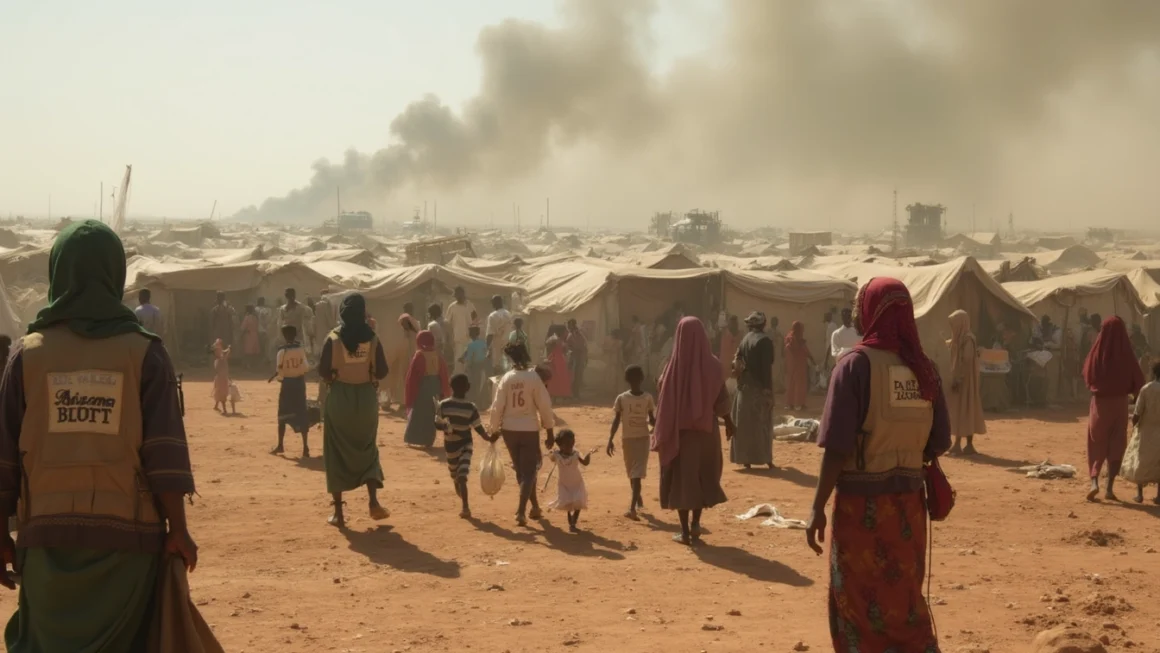The humanitarian crisis in Sudan has reached catastrophic levels, with the recent attack on Zamzam camp in Darfur highlighting the dire situation faced by millions of displaced people. This large camp, home to over 300,000 individuals, was overtaken by the Rapid Support Forces (RSF) in a devastating assault that has left countless lives in peril.
The Attack on Zamzam Camp
Table of Contents
On December 14, the RSF launched a brutal attack on Zamzam camp, one of the largest displacement camps in Darfur. The assault resulted in numerous casualties, with reports of killings, rapes, and widespread looting. The camp’s residents, already vulnerable due to years of conflict, now face even greater hardships as essential supplies and infrastructure have been destroyed or stolen.
Humanitarian Impact
The consequences of this attack are far-reaching:
- Severe food shortages and risk of famine
- Lack of access to clean water and sanitation
- Disruption of medical services and increased health risks
- Displacement of thousands within and beyond the camp
Aid organizations are struggling to provide assistance due to security concerns and limited access to affected areas. The situation is particularly dire for women and children, who make up a significant portion of the camp’s population.
The Broader Conflict in Sudan
The attack on Zamzam camp is part of a larger conflict that has engulfed Sudan since April 2023. The fighting between the Sudanese army and the RSF has resulted in:
- Over 12,000 deaths
- Displacement of millions of people
- Widespread destruction of infrastructure
- Economic collapse and food insecurity
The conflict has been marked by severe human rights violations, including ethnic targeting and sexual violence. The international community has expressed grave concern over the escalating crisis, with calls for immediate ceasefire and humanitarian access.
International Response and Challenges
The United Nations and various humanitarian organizations have been working tirelessly to address the crisis, but face significant obstacles:
- Limited access to affected areas due to ongoing violence
- Insufficient funding for humanitarian operations
- Complexity of delivering aid in a conflict zone
- Difficulty in ensuring the safety of aid workers
Despite these challenges, efforts are being made to provide emergency assistance, including food, water, and medical care to those in need. However, the scale of the crisis demands a more robust international response.
The Risk of Famine
One of the most pressing concerns is the looming threat of famine. The conflict has disrupted agricultural activities, destroyed food stocks, and severely impacted supply chains. As a result:
- Millions are facing acute food insecurity
- Malnutrition rates are soaring, especially among children
- The risk of widespread famine is increasing daily
Urgent action is needed to prevent a catastrophic food crisis that could claim countless lives.
Long-term Implications
The attack on Zamzam camp and the ongoing conflict in Sudan have long-lasting implications:
- Erosion of social fabric and community structures
- Psychological trauma, especially among children
- Setbacks in development and economic progress
- Potential for regional instability
Addressing these issues will require sustained international support and a comprehensive approach to peacebuilding and reconstruction.
The Need for Immediate Action
The situation in Sudan, particularly in Darfur and camps like Zamzam, requires urgent attention and action from the global community. Key priorities include:
- Immediate ceasefire and protection of civilians
- Unhindered humanitarian access to affected areas
- Increased funding for emergency relief operations
- Long-term commitment to peace and stability in the region
The international community must act swiftly to prevent further loss of life and alleviate the suffering of millions caught in this devastating conflict. Automation tools can play a crucial role in streamlining aid distribution and coordinating relief efforts in such complex humanitarian crises.
Conclusion
The attack on Zamzam camp is a stark reminder of the ongoing humanitarian crisis in Sudan. As the situation continues to deteriorate, the need for a coordinated and robust international response becomes increasingly critical. The lives of millions hang in the balance, and the world must not turn a blind eye to their suffering. Immediate action is needed to provide relief, protect civilians, and work towards a lasting solution to the conflict in Sudan.




